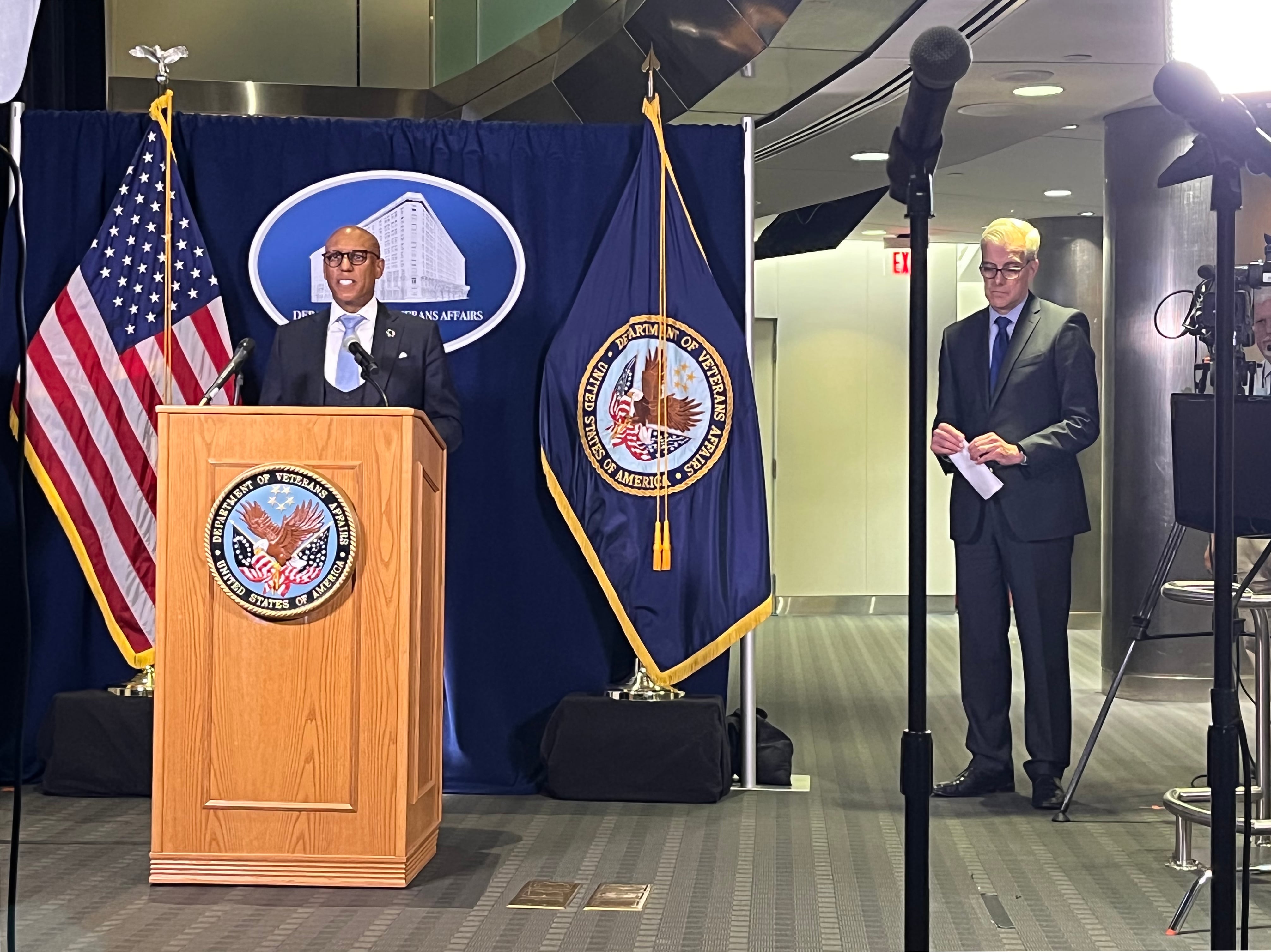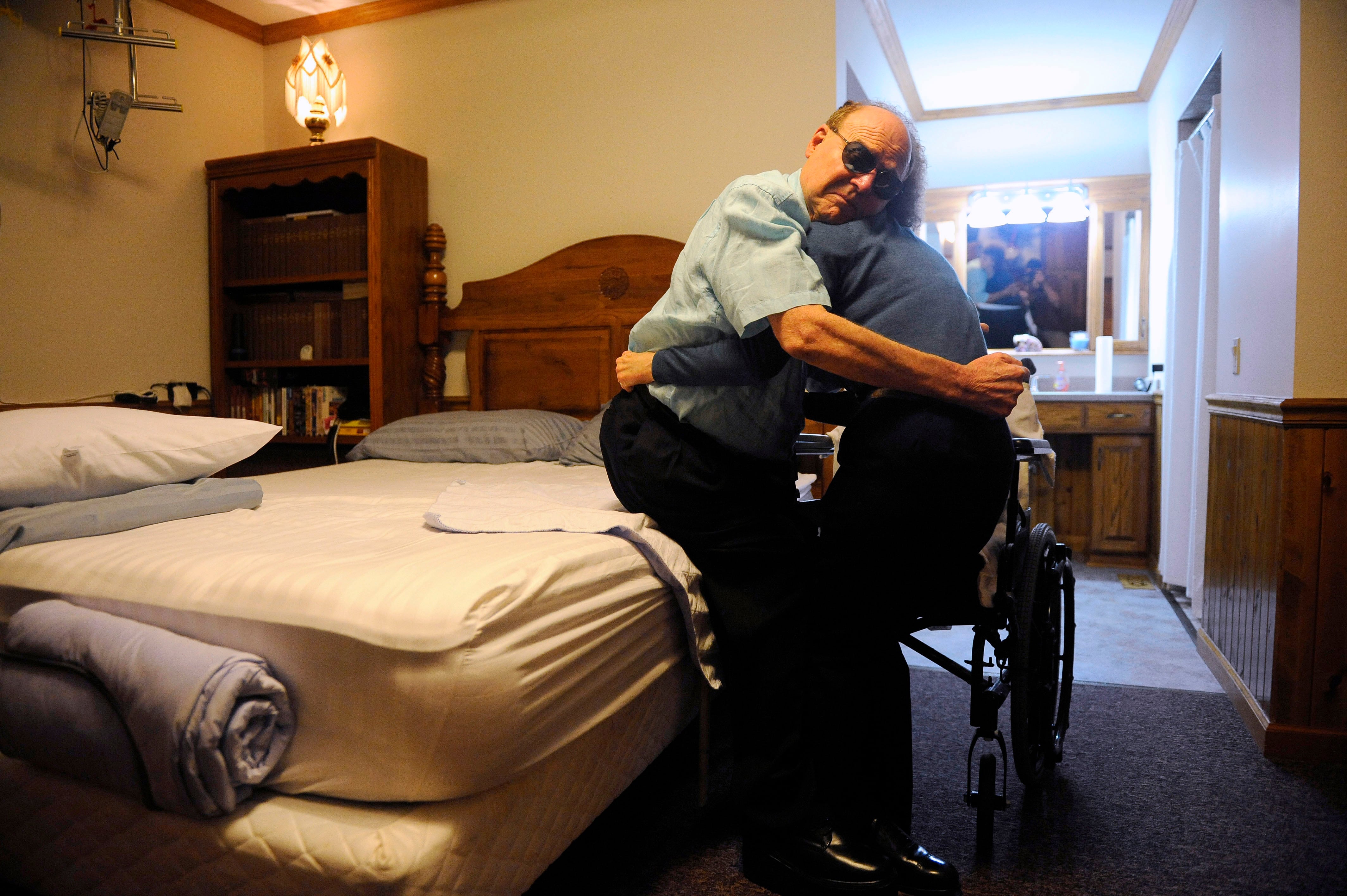Veterans Affairs’ caregiver support programs need a significant overhaul to correct deep-seated flaws within current operations, veterans advocates told lawmakers Wednesday.
A day after department leaders promised to halt all program dismissals amid criticism of new eligibility rules, a coalition of caregiver groups testified before the Senate Veterans’ Affairs Committee that they are optimistic that real changes are on the way, but emphasized it will require more than just new rules and regulations.
“Unless VA prioritizes getting veterans and caregivers into the program and not out of it, the problems will persist,” said Jim Marszalek, national service director for Disabled American Veterans.
“VA must replace the current eligibility regulations and create new standards that are clear, consistent and equitable. And VA must provide detailed explanations on how standards will be measured and applied in each decision notification that is sent to veterans and caregivers.”
RELATED

Over the past six months, officials with the Program of Comprehensive Assistance for Family Caregivers have been reviewing “legacy” participants — individuals admitted before October 2020 — to ensure they meet new eligibility criteria written three years ago.
The department had estimated that as many as one-third of the nearly 20,000 legacy participants could be dropped from the program. But on Tuesday, VA Secretary Denis McDonough acknowledged that number was “much higher” than anticipated, with thousands more families on track to lose access to monthly caregiver stipends.
In light of those elevated rejection rates, McDonough halted all dismissals from the program and promised a full review in coming months.
Currently, a full-time caregiver tending to a veteran who is “unable to self-sustain in the community” can receive the full monthly stipend, while a caretaker for a vet with lesser but still life-altering limitations can receive a partial payment.
The totals vary based on where veterans live, but generally hover around $3,000 a month for the full Level 2 stipend and $1,800 for the partial Level 1 stipend.
Advocates have said for months that new standards put in place by officials are overly confusing and restricting, labeling veterans with severe service injuries as self-sufficient even though they require around-the-clock caregiver support.
Caira Benson, a full-time caregiver to her veteran husband, Eric, said that her family has been dropped and added from the program multiple times in recent years, despite Eric’s brain injuries only worsening.
“Congress created this program to assist caregivers like me whose spouses need substantial care,” she told lawmakers. “It should have been a blessing. However, the program has become unpredictable, stressful and, frankly, dehumanizing.”
VA Assistant Under Secretary for Health Beth Taylor promised improvements in the future. She said officials plan to meet with advocates next month to start reviewing eligibility rules, with an eye towards changing them in the future.
“You have our commitment to guide this support program to be the preeminent program in the industry on caregiving,” she said.
Colleen Richardson, executive director of the VA Caregiver Support Program, acknowledged the grief families are experiencing because of the changes and promised “we will get this right.”
RELATED

But Steve Schwab, CEO of the Elizabeth Dole Foundation, said the only way to do that may be “to start over” instead of looking for partial fixes.
“I think that VA, Congress, the major stakeholder groups, all need to be put in a room for as many days as it takes us to bring these caregivers’ stories forward, to bring these experiences forward.
“I know there are folks in the VA who want to get this right … but it’s time to go back to the fundamentals and redraw the lines.”
Sarah Verardo, CEO of the Independence Fund and herself a caregiver for her severely injured husband, Mike, said the entire caregiver community is frustrated from the chaos of the last few months.
“This program needs to be fixed immediately,” she said. “What we are going through in our households with the veterans for whom we provide care for, it is demoralizing. It is embarrassing.
“I’m here begging you to help fight for all of us, because we’ve been fighting for each other and for our veterans for a long time, and we are exhausted.”
Leo covers Congress, Veterans Affairs and the White House for Military Times. He has covered Washington, D.C. since 2004, focusing on military personnel and veterans policies. His work has earned numerous honors, including a 2009 Polk award, a 2010 National Headliner Award, the IAVA Leadership in Journalism award and the VFW News Media award.




